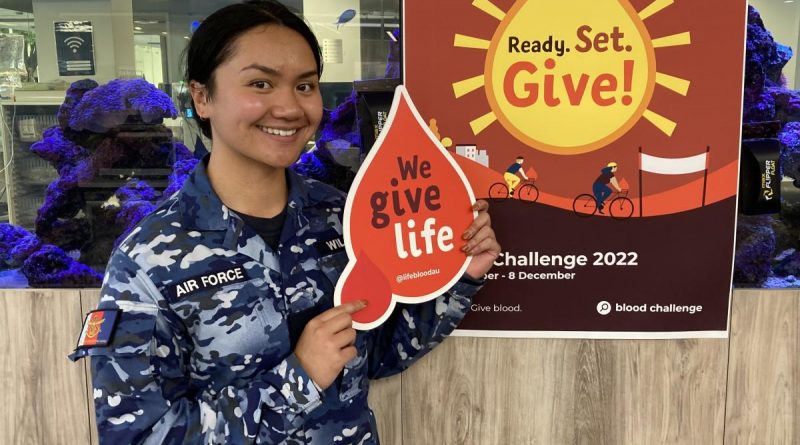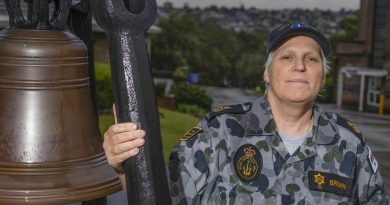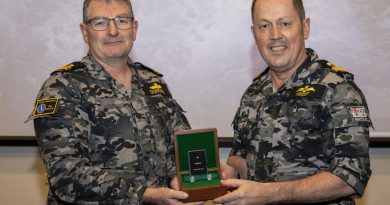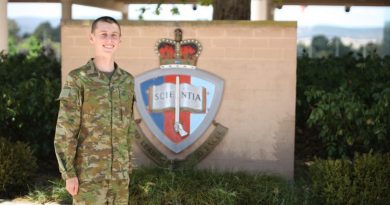A donation not in vein

Donating blood is always a profound way to help the community, but for those with a culturally diverse background it’s even more valuable.
CAPTION: Leading Aircraftwoman Morinda Williams is hoping to inspire other Air Force members from diverse multicultural backgrounds to start donating potentially lifesaving blood. Story and photo by John Noble.
With Australia’s ever-growing multicultural population, Lifeblood needs donors to meet the demand for rare blood types.
A member of Air Force has been aware of this need, and answered the call multiple times by rolling up her sleeve and giving the gift of blood.
Leading Aircraftwoman Morinda Williams, who is of Polynesian background, believes the small part she plays could really help save lives in Australia’s ethnic community.
“Being Polynesian, my family line is very extensive. So the importance of me donating blood means one day, my contribution could directly help close or distant relatives, or those of similar ethnicity,” she said.
“My blood could be the very saviour that is unique to what they require.”
Lifeblood is always in need of donors specifically from the Pacific Islands, Philippines, Sub-Sahara Africa, Asia, India, Pakistan and Iran.
A donor can register ethnic ancestry on the Donate Blood app or an online donor account. Lifeblood can then match the blood type to the recipients in need of a rare blood match.
Leading Aircraftwoman Williams said Defence has plenty of culturally diverse members who are fit, healthy, and eligible to donate blood but for some cultures it’s not a normal topic of conversation, or a normal thing to do.
“The need for blood is constant, so the need to educate and influence our members on the importance of giving blood within the workplace should also be constant,” Leading Aircraftwoman Williams said.
“If my whole family and others in the ADF could see me make regular donations, I bet they would start doing the same. If we actually want to encourage more blood donations from culturally diverse groups, it just needs to become a normal practice.”
.
.

.
.

.





